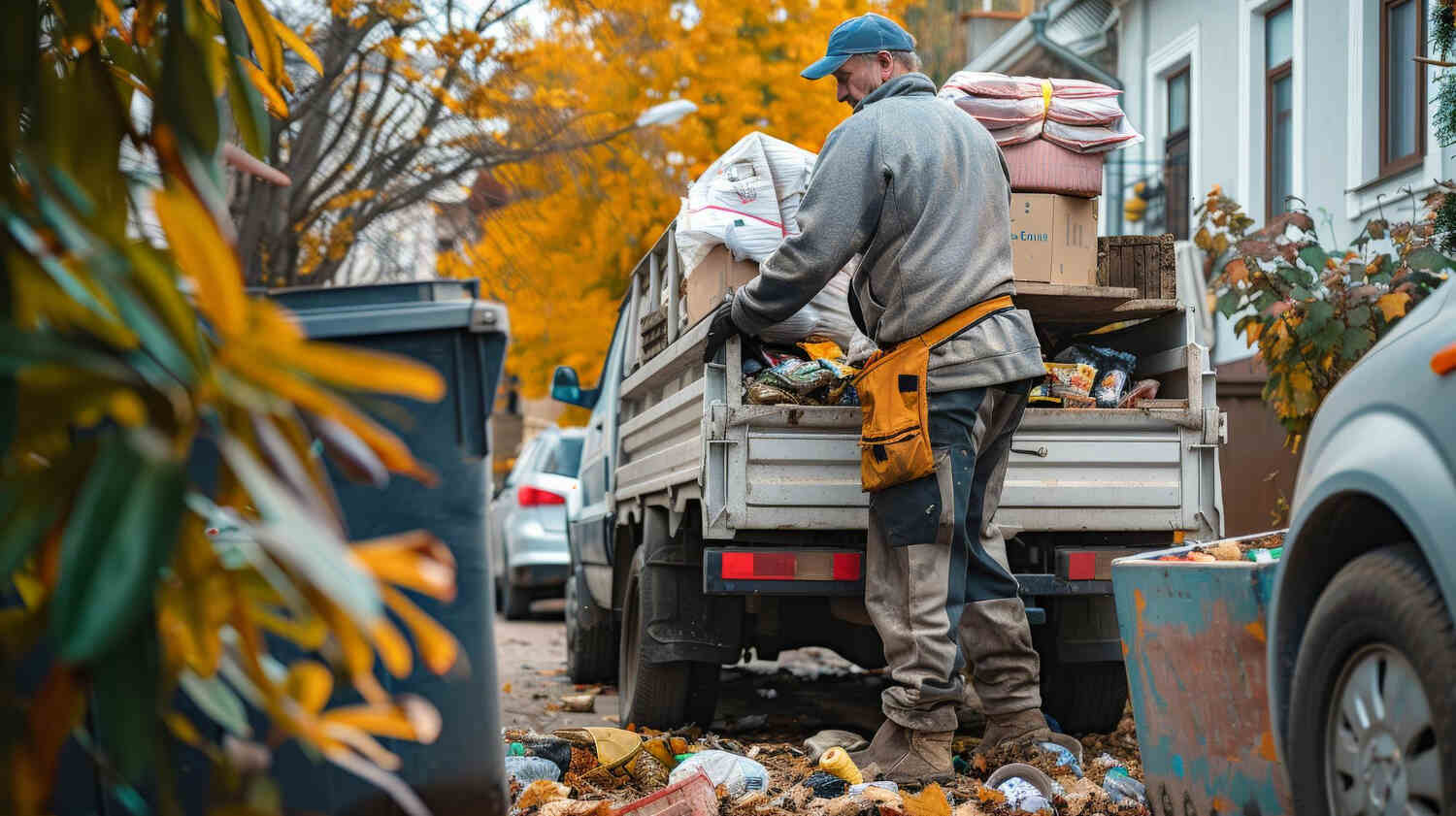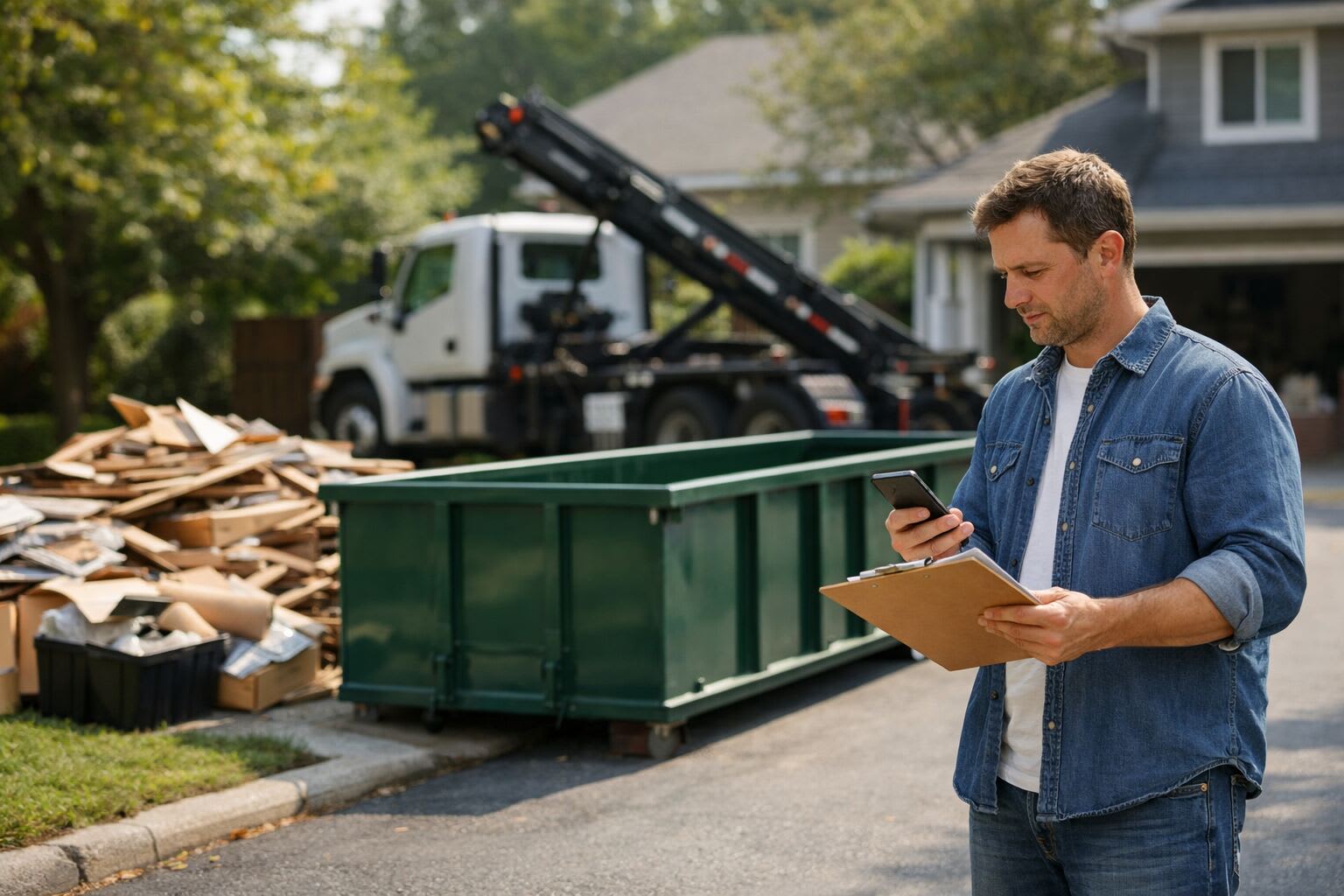BLOG / HOW TO
How to Get Free Junk Removal: The Complete Guide


The average American household generates over 4.5 pounds of waste daily, and when it comes time for major cleanouts, disposal costs can quickly spiral into hundreds or even thousands of dollars. Whether you're doing a garage cleanout, moving to a new home, or simply clearing after years of buildup, the thought of paying $200-500 for professional junk removal services can be daunting.
But here's the reality most people don't know: there are legitimate ways to get completely free junk removal, and we're not talking about questionable "too good to be true" schemes. From strategic donation pickups to municipal programs and creative community solutions, this comprehensive guide reveals solutions that can help you dispose of unwanted items without spending a dime.
The Truth About Free Junk Removal
What Actually Qualifies as Free
True free junk removal means zero out-of-pocket expenses, no hidden fees, and no required purchases. This differs significantly from "low-cost alternatives" that many companies market as "almost free." Legitimate free options include charitable donations where organizations pick up items at no cost, municipal bulk waste programs funded by tax dollars, and community exchanges where neighbors help each other.
However, it's crucial to understand the hidden costs that aren't monetary. Time is often the biggest expense in free junk removal. You might spend hours researching programs, waiting for pickup windows, or coordinating with volunteers. Effort is another hidden cost, including sorting items, preparing them for pickup, and dealing with failed attempts or no-shows.
Transportation costs can also creep in when you need to deliver items to drop-off locations. Even gas money for multiple trips to donation centers or recycling facilities can add up. The opportunity cost of missed work or personal time can make "free" services more expensive than paid alternatives when you calculate your hourly value.
Realistic Expectations
Understanding success rates helps set proper expectations. Donation pickups have roughly a 70% success rate for items in good condition, but this drops to 30% for items with wear or damage. Municipal bulk pickup programs are highly reliable (95% success rate) but often have 2-4 week wait times and strict item restrictions.
Online giveaways through Facebook Marketplace or Craigslist see about 60% of items successfully claimed, but timing matters significantly. Items posted during weekends or evenings get picked up faster than those listed during work hours. Weather, holidays, and local events can all impact pickup success rates.
Timeline expectations vary dramatically between methods. Same-day removal is possible through online giveaways and neighbor networks, but most free options require 1-4 weeks of planning and coordination. Volume limitations are common, with most programs accepting only 3-5 large items or specific cubic yard limits.
Learn More: Junk Removal Tips You Need to Know
7 Proven Methods for Free Junk Removal (Ranked by Effectiveness)
1. Municipal Bulk Trash Pickup Programs
Many cities and counties provide free trash pick-up for large or bulky items through municipal waste programs. If you're prepared to wait, this alternative can let you get rid of furniture, mattresses, yard garbage, or old appliances for free.
The technique often entails reviewing your city's bulk trash schedule and dropping items curbside on particular days. Some regions require advance scheduling, while others provide quarterly or monthly pickup options.
While municipal bulk pickup is useful for smaller cleanouts, it often has restrictions. Cities may have restrictions on the types of items they will accept, and many may refuse construction debris, electronics, or anything deemed hazardous.
2. Donation Pickup Services
If you want to get rid of things for free, you can also donate items in good shape. Many philanthropic and nonprofit organizations will pick up furniture, household items, and appliances for free.
However, this option has restrictions. Most donation centers have rigorous rules for what they will accept. If an item is soiled, broken, or does not work properly, it will most likely be rejected.
It is also usual for donation services to cancel at the last minute if they are unable to fill their truck or if your products do not satisfy their specifications.
So, while technically free, this method is risky and may not be suitable for major cleanouts or tight deadlines.
3. Facebook Marketplace & Curb Alerts
If you enjoy DIY projects, advertising unwanted stuff online is an excellent way to get rid of garbage for free. Websites like as Facebook Marketplace, Craigslist, and Buy Nothing groups are ideal for items such as furniture, gym equipment, and moving boxes.
The premise is simple: take a few photos, write a brief description, and label the item as "free." In many cases, individuals will be glad to pick it up; no effort is required on your part other than publishing.
But, while online curb notifications might be useful, they are not always reliable. You may encounter no-shows, communications from interested buyers who never follow up, or people who disrespect your home. If you leave anything on the curb for too long, your city may punish you for illegal dumping.
4. Recycling Drop-off Locations
Recycling centers and local transfer stations may also provide a free option for some types of waste. Electronics, scrap metal, appliances, and even old mattresses are occasionally taken for free or at a discounted cost if brought to a certified location.
This strategy is very useful for persons who want to dispose of e-waste safely. Instead of throwing away an old TV or laptop, take it to a local center that properly recycles the materials, keeping hazardous components out of landfills.
What's the downside? You'll need a vehicle enough in size to transport the objects, and you'll be doing all the hard lifting. Some sites accept just certain things and may require appointments, paperwork, or a cost. So, while it is ecologically good and occasionally free, it is not always the most convenient option.
5. Neighborhood Networks and Apps
Nextdoor is one of the best tools for finding neighbor-to-neighbor help with junk pickup and disposal. Many people in local communities have trucks and are often willing to lend a hand, either for a favor or simply to be helpful. Because the app requires verified residency, it creates a safer space for these exchanges. Similarly, Ring Neighbors and other safety-focused platforms encourage trust and cooperation, making it easier for residents to assist each other with small tasks like junk removal.
Neighborhood-focused Facebook groups are another reliable option for arranging pickups. These groups, often tied to specific communities, subdivisions, or apartment complexes, tend to have active members who are ready to help. Many people participate because they can reuse or repurpose items, making the process beneficial for both sides. It’s a simple, effective way to reduce waste while finding quick support from people nearby.
Informal arrangements can work just as well, especially in areas where neighbors already know one another. For example, one household might trade help with yard work in exchange for hauling away old furniture. Student housing areas are also a good opportunity, since students often leave behind items during move-out or pick up items when moving in. In apartment complexes, management may even allow residents to leave items in shared dumpster areas for others to claim, provided community rules are followed.
6. Retailer Take-Back Programs
Home Depot and Lowe’s both make appliance disposal easy by including haul-away services with qualifying purchases. Home Depot removes old appliances in any condition and ensures proper recycling during delivery. Lowe’s offers similar services and may even include removal as part of larger purchase packages, reducing the need for separate arrangements.
Best Buy provides one of the most comprehensive recycling programs, accepting a wide range of electronics regardless of where they were bought. While some items like TVs have a fee, many smaller electronics are accepted for free. Geek Squad services may also include removal when setting up new equipment.
Furniture and mattress retailers also offer convenient disposal options. IKEA runs a buyback program in select markets, giving store credit for returned furniture in good condition. Ashley Furniture and similar stores often include old furniture removal with delivery. Mattress retailers increasingly provide free disposal due to recycling mandates, sometimes even without a new purchase.
7. Seasonal and Event-Based Opportunities
Earth Day cleanups often provide dumpsters and volunteers to handle community waste removal. These events usually accept household items, yard waste, and small appliances, with municipalities covering disposal costs. Similarly, neighborhood beautification drives led by HOAs or local groups may offer bulk waste collection with more flexible rules than regular programs.
Student move-out periods near colleges and universities also create bulk disposal opportunities. Schools frequently organize donation drives and waste collection events timed for graduation or summer departures. This helps manage waste efficiently while encouraging reuse and recycling.
Seasonal events also boost disposal efforts. Post-holiday decluttering in January often brings expanded municipal pickups and more charity drives. Spring cleaning allows neighbors to share bulk pickups or coordinate trips to disposal facilities. Around apartment complexes and military bases, end-of-lease periods often spark special collection events to handle turnover waste smoothly.
When Free Isn't Worth It
Calculating the true cost of junk removal goes beyond the price tag. If free disposal takes 20 hours and you value your time at $25/hour, that “free” option actually costs $500. Professional services can complete in less than an hour what might take you several hours or even days, making them far more efficient for people with busy schedules or higher hourly wages. Factoring in stress and convenience, the value of professional help often outweighs free methods.
Local junk removal companies often provide affordable options that balance cost and convenience. Unlike large chains, they typically offer flexible scheduling, transparent pricing, and same-day service. Their value also comes from comprehensive item acceptance, liability coverage, and guaranteed pickup. Compared to the uncertainty and effort of free methods, these modest costs often deliver better overall value.
When deciding between free and paid services, consider your time, energy, and personal stress tolerance. A cost-benefit analysis shows that if your time is worth $20/hour and free methods take 10 hours, any service under $200 is a smarter choice. Beyond numbers, the peace of mind, efficiency, and reduced stress that come with professional junk removal can greatly improve your quality of life.
WeCycle: The Smarter, Low-Cost Alternative to “Free” Junk Removal
WeCycle provides a better solution whether you're short on time or simply want garbage removed without the hassle. WeCycle is a modern junk removal company that handles things differently. They provide nationwide service and offer upfront pricing.
Rather than waiting weeks for city pickups or chasing down curb alert takers, LoadUp allows you to schedule a pickup on your own terms. Our pricing are reasonable and fully stated upfront, with no hidden costs or surprises. And we handle all of the heavy lifting, from pickup to environmentally safe disposal.
WeCycle is committed to sustainability, thus we give and recycle as much as possible. Whether it's an old couch, appliance, mattress, or ordinary household junk, our Loaders arrive prepared to clear it out promptly and ethically.
Conclusion
While free junk removal may seem cost-effective at first, the hidden costs of time, stress, and effort often make professional services the smarter choice. By factoring in your personal hourly value and convenience, it becomes clear that paying for reliable, efficient service can save both money and peace of mind. Ultimately, investing in a trusted junk removal company provides not just clean space, but also the freedom to focus on what truly matters.
Frequently Asked Questions
How can I get free junk removal near me?
You can get free junk removal by contacting local charities, scrap metal buyers, community groups, or posting items on sites like Craigslist and Facebook Marketplace. Many people will pick up usable items at no cost.
Who hauls away scrap metal for free?
Scrap metal collectors and recycling centers often haul away appliances, old cars, and metal items for free because they can resell the metal.
Can I get free junk removal from my city?
Many cities offer free bulk trash pickup on scheduled days. Contact your local waste management service to check eligibility.
What is the easiest way to get rid of junk for free?
The easiest way is to list items online for “free pickup,” call local donation centers, or arrange a free bulk collection day with your city’s waste department.
KB Choudhury is the Chief Executive Officer of WeCycle, a technology-driven platform dedicated to transforming the recycling and waste management industry. Under his leadership, WeCycle focuses on creating efficient, data-powered solutions that simplify waste collection, promote eco-friendly practices, and support a sustainable circular economy. Choudhury’s vision for WeCycle centers on leveraging innovation and digital tools to make recycling smarter, more accessible, and impactful for both businesses and communities.
Read our latest blog posts
Need junk gone fast? See pricing in your area
Enter your zip code to see if Wecycle operates in your location.



